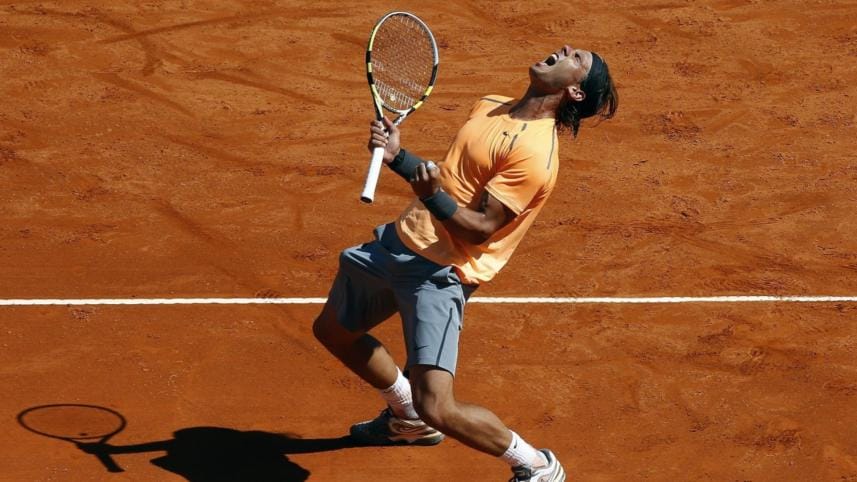Nadal's place in tennis history etched in clay

When a teenaged Rafa Nadal bounced in to Roland Garros in pirate pants and sleeveless shirt in May 2005 before scything through the draw, few realised it marked the start of an unprecedented era of sporting domination.
Nearly two decades later, and with 22 Grand Slam titles amongst his glittering bounty, the Spaniard has announced he will retire after the Davis Cup Finals in November.
The 38-year-old Mallorcan's unsurprising decision comes two years after his great rival Roger Federer called time on his golden career and in the same year that another member of the big four, Andy Murray, hung up his racket.
Only Novak Djokovic of a quartet that took tennis to unthinkable heights remains and with a men's record 24 Grand Slam titles to his name, the Serb's fans insist the statistics make him the greaTest of all time.
The GOAT argument will run and run, but what cannot be disputed is that Nadal will always be the 'King of Clay'.
After dispatching Argentina's Mariano Puerta in 2005 for his first Grand Slam title, Nadal became virtually unbeatable on what is widely-regarded as the toughest surface in the sport.
His numbers on the red dirt are simply mind-boggling.
Nadal won a total of 14 French Open titles, the most by any player at a single Grand Slam. Of the 116 matches he played at the tournament he won 112 of them, earning $26 million in prize money in the process.
Only three players have beaten him at the French Open. Robin Soderling managed it in 2009 when Nadal was hampered by a knee injury and Djokovic twice beat him, in 2015 when Nadal was again struggling physically, and in 2021.
His last French Open match was this year's first-round defeat by Germany's Alexander Zverev shortly after returning from nearly a year away with a hip injury.
Peak Nadal, however, was unstoppable on clay and the statue erected at Roland Garros captures the left-handed forehand that will haunt the countless victims it pummelled into submission.
Delivered like a whip crack with vicious topspin and pace to all corners of the court, it was the single-most destructive weapon ever seen in tennis, or any sport, and one that put fear in the eyes of anyone across the net, even Federer and Djokovic.
Nadal's swinging serve and clubbing backhand were also formidable parts of his armoury as was his explosive court-coverage while his fabled warrior spirit meant he played every point of his career as if his life depended on it.
But it was the forehand that was the bedrock in delivering a record 63 titles on clay and a staggering record streak of 81 successive wins on the surface between 2005 and 2007.
Nadal was much more than a claycourt bully, though. He spent more than 900 successive weeks from 2005 in the ATP's top 10, 209 of them at number one and at the age of 24 became the youngest player to complete the career Grand Slam.
He adapted his game to suit the skiddy Wimbledon lawns, becoming the first Spaniard to win the title in more than 40 years when he beat Federer in an epic 2008 final, widely-regarded as one of the best matches of all time.
Nadal also won Wimbledon in 2010, won four U.S Open titles and two Australian Open titles, most recently in 2022 when, after a six-month injury lay-off, aged 35, he beat Daniil Medvedev in more than five hours from a two-set deficit.
That title took him past Federer and Djokovic on the all-time list of men's Grand Slam champions and when he won the French Open for the final time a few months later to reach 22 it appeared he had put himself out of reach.
Since then, Nadal's battle scars have restricted his appearances and the relentless Djokovic has charged on.
Nadal's final bow, fittingly, will be in Malaga playing in the Davis Cup Finals next month and all those who love tennis will hope he can sign off alongside new Spanish prince Carlos Alcaraz by sinking his teeth into one more trophy.



 For all latest news, follow The Daily Star's Google News channel.
For all latest news, follow The Daily Star's Google News channel.
Comments